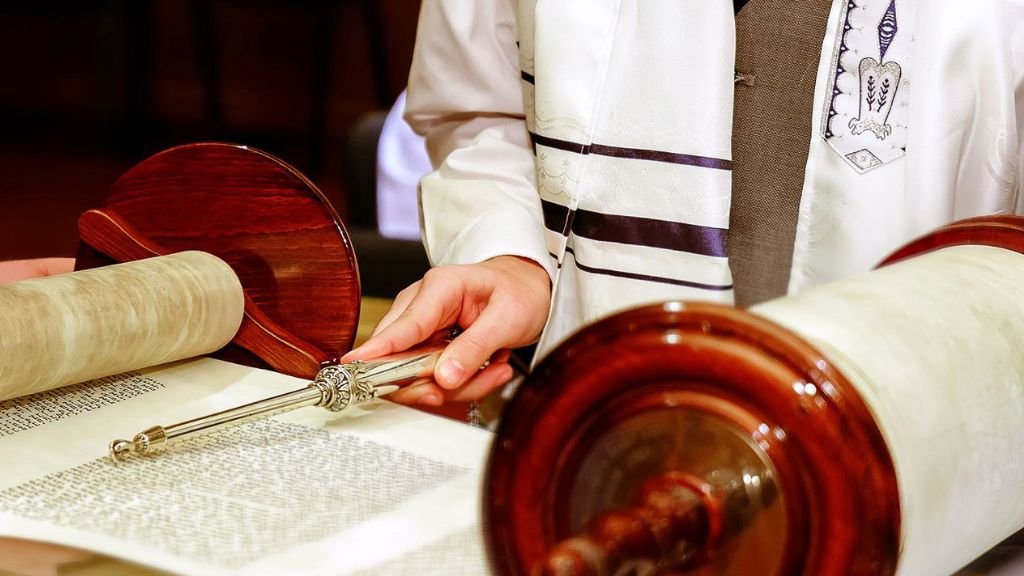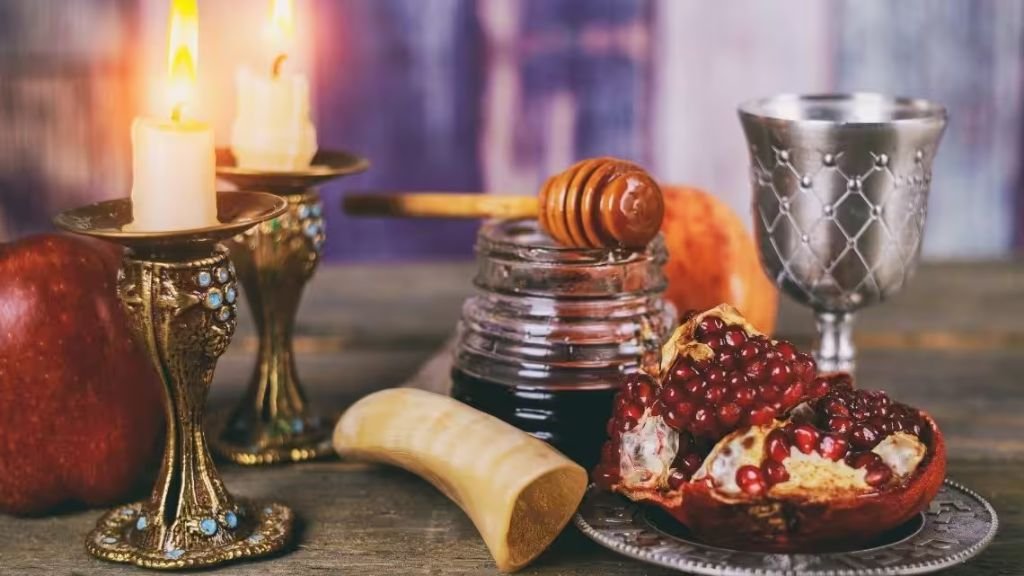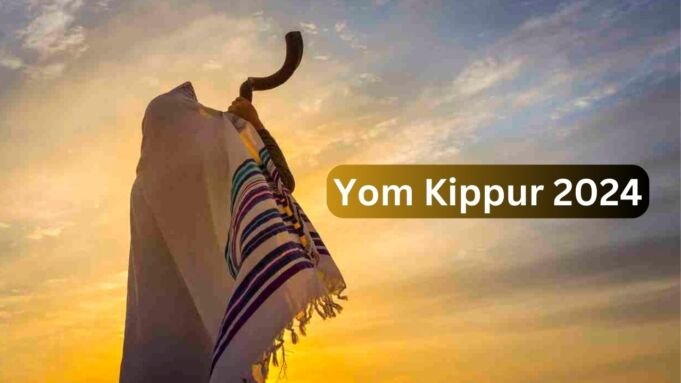Yom Kippur, also known as the Day of Atonement, stands as one of the most sacred and solemn days in Judaism. It is a day dedicated to introspection, prayer, and seeking forgiveness, both from the Divine and from those we may have wronged throughout the year. Yom Kippur 2024, will commence at sunset on Tuesday, October 11th, and conclude at nightfall on Wednesday, October 12th. This period marks a time when Jewish communities around the world pause their regular activities to observe a day of fasting and prayer, reflecting on their actions and seeking a renewal of spirit.
Significance of Yom Kippur
Yom Kippur is considered the holiest day in the Jewish calendar, offering an opportunity for individuals to atone for their sins of the past year. It is a culmination of the Ten Days of Repentance that begin with Rosh Hashanah, the Jewish New Year. This period is a time for serious reflection on one’s actions and their impact on others, with Yom Kippur serving as the final chance to make amends and seek forgiveness.
The origins of Yom Kippur can be traced back to the Torah, specifically in the book of Leviticus (Vayikra), where God instructs Moses on the rituals of atonement for the Israelites. It was on this day that the High Priest would enter the Holy of Holies in the Temple to make sacrifices for the sins of the people, symbolizing a direct appeal to God for forgiveness.
The core themes of Yom Kippur revolve around teshuvah (repentance), selichah (forgiveness), and mechilah (pardon). It is a day when Jews seek to return to a state of purity in their relationship with God and their fellow humans. The emphasis is on moral inventory, making amends, and committing to improvement in the coming year, embodying a spirit of renewal and hope.
When Does Yom Kippur 2024 Start?
Yom Kippur for the year 2024 will commence with the setting of the sun on the 11th of October. With the sunset marking the official beginning of the festival locally, adherents engage in the observance of its traditions, including abstaining from all forms of food and drink, including water, participating in prayer services at synagogues, and undertaking acts of repentance.
The following day is observed as a complete holiday, with observance refraining from eating, working, or even leaving their homes. They dedicate the entire day to the reading of sacred texts, contemplation, and prayer, typically within the confines of a synagogue.
Related Read: Passover 2024
When Does Yom Kippur 2024 End?
The observance of Yom Kippur in 2024 concludes on the evening of October 12th, with the end of the festival marked by the setting sun. At this point, all observances associated with the festival are concluded, culminating in the breaking of the fast. A closing prayer, known as Ne’ila (‘Closing’), is typically held just before the sun sets.
Breaking the fast is traditionally celebrated with a substantial dinner, referred to as ‘break-fast’. This meal, often consisting of various traditional and comforting foods, is a time for families and communities to come together in a spirit of celebration and renewal, following the solemn period of Yom Kippur observance.
Yom Kippur Date 2024, 2025, 2026…
Yom Kippur takes place on the 10th day of Tishrei, which is the seventh month in the Jewish calendar, typically occurring from late September to mid-October. Below are the observance dates for Yom Kippur in 2024, 2025, 2026…
| Year | Hebrew Year | Yom Kippur Start Date | Yom Kippur End Date |
| 2024 | 5785 | Sunset October 11 | To nightfall October 12 |
| 2025 | 5786 | Sunset October 1 | To nightfall October 2 |
| 2026 | 5787 | Sunset September 20 | To nightfall September 21 |
| 2027 | 5788 | Sunset October 10 | To nightfall October 11 |
| 2028 | 5789 | Sunset September 29 | To nightfall September 30 |
| 2029 | 5790 | Sunset September 18 | To nightfall September 19 |
Yom Kippur Observances and Traditions

Fasting and its Significance
Fasting on Yom Kippur is one of the most well-known observances, lasting for approximately 25 hours from just before sunset on the eve of Yom Kippur until after nightfall on the day itself. The fast is a physical manifestation of the day’s spiritual objectives, encouraging humility, self-discipline, and reflection. It is seen as a way to purify the body and soul, making one’s prayers more sincere and meaningful.
Prayer Services: Kol Nidre and Ne’ilah
The Yom Kippur liturgy includes several unique and powerful prayer services, starting with Kol Nidre on the eve of the holiday. Kol Nidre is an ancient legal formula recited in a haunting melody, asking for the annulment of vows made to God during the past year. Ne’ilah, the closing service as the day ends, represents the sealing of the Book of Life, in which the fate of each individual is inscribed by God for the coming year. It is a moment of intense prayer and supplication, with the congregation standing in earnest appeal for forgiveness.
Reflection and Community Aspects
Yom Kippur emphasizes both personal introspection and the importance of community. It is a time when individuals reflect on their personal relationships and how they contribute to the welfare of the community. The day stresses collective responsibility, acknowledging that communal sins affect everyone’s standing before God.
Prohibitions and Traditional Practices
In addition to fasting, there are several other prohibitions designed to remove distractions and focus on spiritual pursuits. These include abstaining from bathing, wearing leather shoes, applying lotions or perfumes, and engaging in marital relations. Many also follow the tradition of wearing white as a symbol of purity and a reminder of the biblical promise that sins can be made as white as snow.
Yom Kippur’s observances and traditions serve to guide individuals through a deeply reflective and spiritual journey, emphasizing the values of forgiveness, humility, and the possibility of renewal. As 2024 approaches, these timeless practices will once again provide a framework for personal and communal reflection, as individuals seek to enter the new year with a clean slate and a renewed spirit.
Read Also: Regatta De Zamboanga Festival
Preparations for Yom Kippur

Pre-fast Meals (Seudah Mafseket)
Before the fast begins, it is customary to partake in a pre-fast meal known as Seudah Mafseket. This meal is usually lighter and should be finished before sunset. Foods that are easy to digest and hydrating are preferred, to help sustain individuals through the fast. It’s also a time for families to gather and share intentions or prayers for the fast ahead.
Spiritual Preparation
The period leading up to Yom Kippur is a time for deep spiritual reflection. Individuals may seek out others to offer and request forgiveness, a practice that underscores the communal aspect of atonement. Engaging in charitable deeds (tzedakah) is another way to prepare, reflecting the desire to enter the Day of Atonement with a spirit of generosity and compassion. Many also spend time studying religious texts and engaging in self-examination to fully prepare for the day’s prayers and reflections.
Community and Synagogue Arrangements
Synagogues often hold preparatory classes or events to help congregants understand the significance of Yom Kippur and the observances involved. Special arrangements for extended services, childcare, and break-the-fast meals are also common. Community members may volunteer to assist with these arrangements, fostering a sense of collective responsibility and support.
Yom Kippur 2024 Observance Around the World
The observance of Yom Kippur in 2024, like every year, will reflect a blend of solemnity, reverence, and communal introspection across the globe. While the core practices of fasting, prayer, and repentance unite Jewish communities, local customs and the context of each country add unique colors to the observance. Here’s how Yom Kippur 2024 is likely to be observed around the world:
In Israel
Yom Kippur in Israel is a profound experience, with the entire country coming to a standstill. Public transportation and businesses close, streets are emptied of cars, and even broadcasting on radio and television is paused, creating a palpable atmosphere of reflection and silence. This day of communal observance is marked by a deep national engagement with the rituals and traditions of Yom Kippur, from fasting and attending synagogue services to the collective experience of the nation in prayer and contemplation.
Also Read: Guatemala Festivals and Traditions
United States and Canada
In the United States and Canada, Yom Kippur sees significant observance among Jewish communities, with synagogues hosting large numbers of prayer services. While not a public holiday, many Jewish-run businesses and organizations close, and schools often accommodate students observing the day. Community break-fasts are common, bringing together people to mark the end of the fast in a spirit of renewal and community.
Europe
In European countries, the observance of Yom Kippur varies widely due to the diversity of Jewish communities across the continent. Major cities with significant Jewish populations, such as London, Paris, and Berlin, see synagogues filled with worshippers. Local customs may influence the nature of observance, with community events and educational programs often surrounding the day.
Australia and New Zealand
Down under, Yom Kippur is observed by the Jewish communities with traditional solemnity, including fasting, prayer, and communal services. Synagogues play a central role in the observance, with special services drawing large attendances. Community organizations often host break-fast meals, emphasizing the communal aspect of the holiday.
Diverse Practices Globally
Across the globe, from Latin America to Asia, Jewish communities observe Yom Kippur with the universal themes of atonement and reflection, adapted to local contexts and traditions. Whether it’s small gatherings in countries with fewer Jewish residents or larger communal observances in places with substantial Jewish populations, the essence of Yom Kippur as a day of solemnity and introspection is maintained.
Online Observances
With the increasing accessibility of digital platforms, many will also participate in online observances, joining virtual services or engaging with Yom Kippur-themed content to observe the day, especially in regions where Jewish communities are sparse or in light of health and safety considerations.
Yom Kippur 2024 will continue to be a day of significant spiritual importance, observed by millions around the world. Despite the diversity in practices, the heart of Yom Kippur—its call to introspection, atonement, and renewal—unites Jewish communities globally, reflecting the timeless and universal appeal of its observances.
Read More: Perfect Jewish Gifts for The Holidays
Conclusion
Yom Kippur stands as a pillar of the Jewish faith, a day devoted to introspection, atonement, and renewal. Its observance offers a powerful antidote to the distractions and pressures of modern life, inviting individuals and communities to pause, reflect, and reconnect with their spiritual roots. The day’s emphasis on forgiveness, both sought and offered, fosters a sense of communal harmony and personal peace.
As Yom Kippur 2024 approaches, let us embrace the opportunity it presents for deep spiritual reflection and growth. May the fast and the day’s observances serve as a catalyst for meaningful change, inspiring us to live more thoughtfully and compassionately in the year to come. Encouraged by the collective spirit of our communities and the timeless teachings of our faith, let us observe Yom Kippur with intention and openness, ready to be transformed by its profound lessons.
Frequently Asked Questions (FAQs) about Yom Kippur 2024
Is Yom Kippur a Public Holiday?
In the United States, Yom Kippur is not officially recognized as a public holiday. However, many organizations operated by the Jewish community may close in observance of this day.
Why do Jewish holidays start at nighttime?
The practice of starting Jewish holidays at nighttime is rooted in the Torah’s creation narrative in Genesis, which states, “And it was evening, and it was morning day one,” and similarly for the second day, indicating that night precedes day. Consequently, the Jewish calendar marks the start of all days, including holidays, from nightfall and continues until nightfall of the following day.
What are the rules of Yom Kippur?
Yom Kippur begins at sunset and is observed over a 25-hour period. During this time, there are five restrictions: consuming food and beverages, applying moisturizers or oils to the body, taking baths, engaging in sexual activities, and wearing footwear made of leather.
How Long is the Yom Kippur Public Holiday in Israel?
Yom Kippur is observed as a one-day public holiday in Israel. For the year 2024, this day falls on Saturday, October 12th, coinciding with the Sabbath.










![What Does Aviates Stand for in Aviation? [The Art of Flying] Aviates](https://tourinplanet.com/wp-content/uploads/2024/07/Aviates-100x75.jpg)














![25 Best Peruvian Foods You Must Try In Peru [With Recipes] Peruvian Food](https://tourinplanet.com/wp-content/uploads/2024/07/Peruvian-Food-100x75.jpg)


